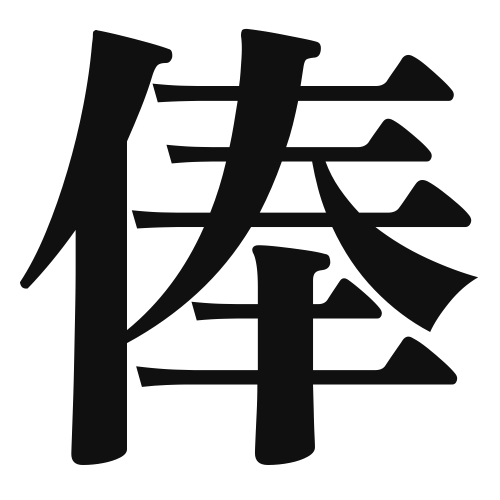1. Overview of Meaning
The kanji “俸” (pronounced “hou”) refers to a salary or wage, particularly in the context of compensation for work or services rendered. It is often associated with formal or official payments.
2. Formation and Radical
Formation of the Kanji: The kanji “俸” is a phonetic compound (形声文字) that combines the elements of “人” (person) and “奉” (to serve or offer). This suggests a connection between a person and the act of receiving payment for their service.
Radical: The radical of “俸” is “人” (person), which indicates that the kanji is related to human activities, particularly those involving work and compensation.
3. Examples of Usage
Common Words and Phrases:
- 俸給 (ほうきゅう, houkyuu) – salary
- 俸料 (ほうりょう, houryou) – remuneration
Example Sentences in Daily Conversation:
- 彼の俸給は毎年上がっています。 (かれのほうきゅうはまいとしあがっています。) – His salary increases every year.
- 新しい仕事では、俸料が良いです。 (あたらしいしごとでは、ほうりょうがよいです。) – The remuneration for the new job is good.
4. Synonyms and Antonyms
Similar Kanji:
- 賃 (ちん, chin) – This kanji refers to rent or fee, often used in the context of payment for services or property, but it is less formal than “俸.”
- 報酬 (ほうしゅう, houshuu) – This means reward or compensation, often used in a broader sense than “俸.”
Antonyms:
- 無給 (むきゅう, mukyuu) – This means unpaid or without salary, which is the opposite of receiving a salary.
5. Cultural and Historical Background
Relation to Japanese Culture: The concept of “俸” is deeply rooted in the traditional Japanese work ethic, where loyalty and dedication to one’s employer are highly valued. The idea of receiving a fair salary for one’s labor is an important aspect of this culture.
Proverbs and Idioms:
- 「働かざる者食うべからず」 (はたらかざるものくうべからず) – “He who does not work shall not eat,” emphasizing the importance of earning one’s livelihood through work.
